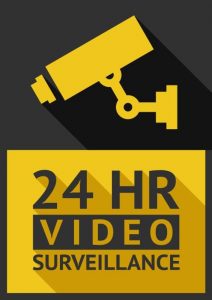 The opening of a community’s recreational facilities often marks the beginning of summer fun for the residents. However, it also can bring headaches for association boards and managers when the recreational facilities become the subject of the summer fun. Pool furniture thrown in the pool, graffiti on the clubhouse, beer cans stuffed in the trash cans, signs of recreational drug use on the playground, landscaping pulled up, trenched, or, even worse, rolled. Sound familiar?
The opening of a community’s recreational facilities often marks the beginning of summer fun for the residents. However, it also can bring headaches for association boards and managers when the recreational facilities become the subject of the summer fun. Pool furniture thrown in the pool, graffiti on the clubhouse, beer cans stuffed in the trash cans, signs of recreational drug use on the playground, landscaping pulled up, trenched, or, even worse, rolled. Sound familiar?
Some may argue it is harmless summer fun, but the truth is that vandalism costs associations thousands of dollars every year to repair. That money is coming straight out of the pocket of the homeowners. To reduce the costs and headaches associated with vandalism, associations are turning to increased security measures, such as security cameras, to deter and eliminate summertime shenanigans.
Often when an association proposes to install security cameras at the pool or recreational facilities, it raises a host of questions and concerns. The following are some of the more common questions or concerns that are raised:
Invasion of Privacy.
The first and foremost concern faced by many association are those members citing the invasion of their privacy or that of their children. The bottom line answer is that, so long as the cameras are not installed in an area where a person has a reasonable expectation of privacy, the installation of a camera will not be an invasion of privacy. Any area that is used for the general public, such as the pools, tennis courts or entrances and exits to the clubhouse are not areas where a person would have a reasonable expectation of privacy. On the other hand, cameras in areas such as bathrooms or dressing rooms will normally be off limits.
Liability to the Association.
Another concern when it comes to the installation of security cameras is potential liability to the association. The governing documents for many communities contain an exculpatory clause which provides that the association is not responsible for providing safety or security to its residents or guests. This is an important provision to have, as it would be an enormous (and potentially expensive) risk for an association to take on the guarantee of the personal safety and security of each individual resident and guest, as well as their personal belongings. In light of this exculpatory provision, an association should avoid any actions which give the impression that it is taking affirmative steps to ensure the safety and security of residents and guests. Accordingly, if it installs cameras, it should notify all residents that the cameras have been installed solely for the purpose of deterring criminal activity, and have not been installed as a means of insuring the safety of the residents and their guests. Owners should be reminded on a fairly regular basis that they remain responsible for their own safety and security.
Footage Policy.
Whenever an association installs security cameras, it should adopt a policy making it clear that the cameras and any content captured is association property. This resolution should also define who can review the video recordings. Generally, it is recommended that the resolution provides that no one will be monitoring the video live and that, other than the board and/or property manager, no one can review the recordings. The only exceptions to viewing the recordings is if the association has a request from a law enforcement agency or is served with a subpoena or a court order to provide the video recordings. Having a solid policy in place can help reduce disputes over access to the footage to settle homeowner disputes or matters which are unrelated to vandalism at the pool or infractions of association rules.
Posting Footage.
Another question that frequently arises is whether an association can post pictures or footage from a camera to identify person or persons committing vandalism or otherwise breaking association rules. In general, posting a picture to identify a person or persons on camera should be the last resort for an association. However, if it becomes necessary to do so for identification purposes, it can be done in a way that reduces potential liability to the association. First, any posted pictures should be accurately time and date stamped. Second, the post should simply request assistance in identifying the person or persons captured in the picture. The association should avoid any accusations such as indicating the person(s) were trespassing or committing a crime.
If an association takes appropriate steps to reduce its liability and to educate the owners on the purpose of the cameras and the rights to the footage, security cameras at the pool or recreational facilities can be helpful in deterring and preventing vandalism and other infractions of the rules.
